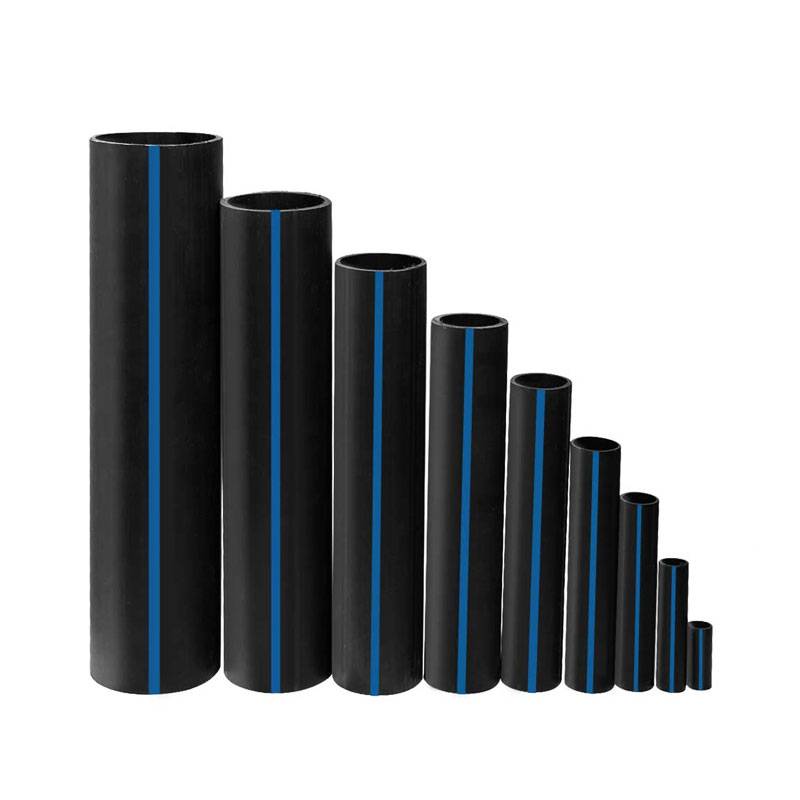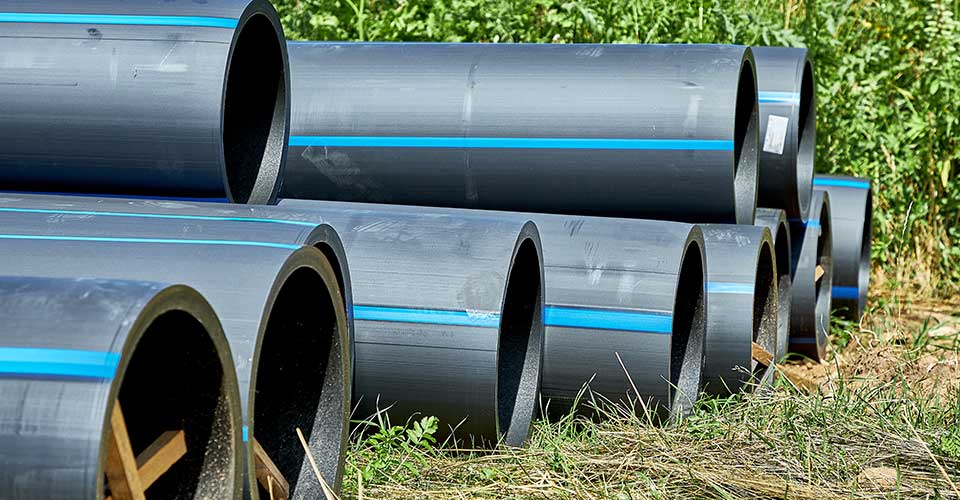The Role of Pipe Manufacturing Midland TX in Supporting Industry Growth
A Comprehensive Overview to the Numerous Uses of HDPE Pipeline in Construction and Industry
HDPE pipelines have actually become a pivotal element in modern-day construction and commercial applications. Their special buildings, such as resistance to rust and lightweight style, make them appropriate for a large range of usages. From supply of water systems to farming watering, HDPE pipelines offer solutions that enhance performance and sustainability. Understanding their diverse applications is important for professionals seeking to enhance infrastructure. What details advantages do these pipes bring to each field?
Water Supply and Distribution Systems
Water and distribution systems are essential components of city framework, usually counting on high-density polyethylene (HDPE) pipelines for their resilience and effectiveness. These systems transport potable water from treatment centers to customers, ensuring ease of access and safety and security. HDPE pipes are preferred for their resistance to rust, chemicals, and extreme temperature levels, which enhances their long life and decreases upkeep expenses. Furthermore, their lightweight nature enables for much easier installation and transportation, making them ideal for different metropolitan and country applications.
The versatility of HDPE pipelines enables them to be installed in tight spaces and around barriers, minimizing the requirement for considerable excavation (Texas hdpe pipe manufacturer). Furthermore, their smooth indoor surface area reduces rubbing losses, enhancing water flow prices. As cities proceed to grow, the demand for reliable water supply systems boosts, placing HDPE pipelines as a sustainable solution for modern infrastructure jobs. Their proven performance history makes them a recommended choice amongst designers and urban coordinators alike
Wastewater Management and Treatment
Effective wastewater monitoring and therapy are essential for preserving public health and wellness and ecological top quality. HDPE pipelines play an important role in this process as a result of their durability, resistance to rust, and capability to withstand rough chemicals. These pipelines are frequently made use of in numerous applications, including sewer systems, stormwater drainage, and wastewater therapy facilities. Their light-weight nature promotes easier setup and transportation, minimizing labor prices and time.
Additionally, HDPE pipelines have a smooth interior surface that lessens rubbing loss, promoting reliable circulation rates. They are likewise much less vulnerable to leakages and failings compared to standard materials, making sure that pollutants are consisted of properly. Additionally, their versatility permits flexibility in different soil problems, making them appropriate for diverse ecological settings. As industries significantly focus on lasting practices, making use of HDPE pipes in wastewater monitoring systems lines up with objectives for reducing ecological impact and enhancing source healing.
Agricultural Watering Solutions
In farming settings, efficient irrigation services are necessary for optimizing crop returns and handling water resources. HDPE (High-Density Polyethylene) pipes play a vital function in modern-day irrigation systems due to their longevity, adaptability, and resistance to deterioration. Their ability to withstand high pressures makes them ideal for both surface area and subsurface watering applications, making certain uniform water circulation across fields.
Farmers can utilize HDPE pipes in drip watering systems, which supply water straight to plant origins, minimizing wastefulness and promoting healthy growth. In addition, these pipelines are light-weight and simple to install, lowering labor prices and installment time. Their lengthy life-span and low upkeep needs additionally boost their allure in farming methods.
HDPE pipelines are ecologically pleasant, as they can be recycled and do not seep damaging chemicals into the dirt. This makes them a sustainable option for farmers intending to take on eco-friendly read more farming methods while optimizing performance.
Industrial Applications and Procedures
Convenience is a hallmark of HDPE pipes, making them essential in various industrial applications and procedures. These pipelines are widely made use of in chemical handling sectors because of their outstanding resistance to a broad variety of corrosive compounds. HDPE's lightweight nature, incorporated with high tensile stamina, permits easy setup and long-lasting efficiency popular environments.
In the oil and gas industry, HDPE pipelines play an essential function in delivering hydrocarbons and gases, many thanks to their sturdiness and flexibility - Pipe Supplier American Plastics Midland. In addition, they are used in mining operations for the transport of slurry and various other products, where typical piping systems might fall short
Furthermore, HDPE pipelines are increasingly utilized in producing facilities for water supply lines and wastewater monitoring. Their capacity to stand up to extreme temperatures and pressures makes them ideal for a selection of industrial processes. Overall, HDPE pipes add greatly to effectiveness and security throughout varied industrial applications.
Stormwater Monitoring and Water Drainage Equipments
Stormwater administration and drain systems are crucial elements in urban infrastructure, developed to handle excess rains and decrease flooding dangers. High-density polyethylene (HDPE) pipes are increasingly used in these systems due to their longevity, flexibility, and resistance to deterioration. These pipelines efficiently transfer stormwater far from booming areas, reducing surface area drainage and stopping waterlogging.
HDPE's lightweight nature promotes much easier installation, minimizing labor expenses and construction time. Furthermore, its resistance to chemicals and environmental stress factors warranties durability and reliability in different climates. Along with typical drain applications, HDPE pipes are likewise used in innovative remedies such as environment-friendly facilities, which consists of rain yards and permeable pavements.

Often Asked Inquiries
Exactly How Does HDPE Pipeline Contrast to PVC Pipe in Expense?
As a whole, HDPE pipeline tends to be extra costly than PVC pipeline because of its improved toughness and flexibility. Nevertheless, long-term expense factors to consider, such as maintenance and lifespan, might favor HDPE in certain applications.

What Is the Life-span of HDPE Piping Under Diverse Problems?
HDPE pipelines generally have a life expectancy of 50 to 100 years, relying on environmental conditions, setup methods, and use. Aspects such as temperature, soil kind, and exposure to chemicals can significantly affect their longevity.
Can HDPE Water Lines Be Recycled After Use?
Yes, HDPE pipelines can be recycled after usage. The reusing process includes thawing down the material, allowing it to be repurposed into new products, consequently promoting sustainability and lowering ecological effect connected with plastic waste.
Exist Any Kind Of Certain Installment Obstacles With HDPE Pipelines?
Installation obstacles with HDPE pipelines include proper jointing methods, guaranteeing ample trench problems, and handling thermal growth. Furthermore, competent labor is called for to manage customized devices, which can complicate the installment process in different settings.

What Accreditations Should I Seek When Getting HDPE Pipes?
When purchasing HDPE pipes, one must seek accreditations such as ASTM, AASHTO, and ISO, which validate top quality and compliance with market requirements, guaranteeing durability and performance in different applications. - Midland TX HDPE Pipe Fittings in Stock